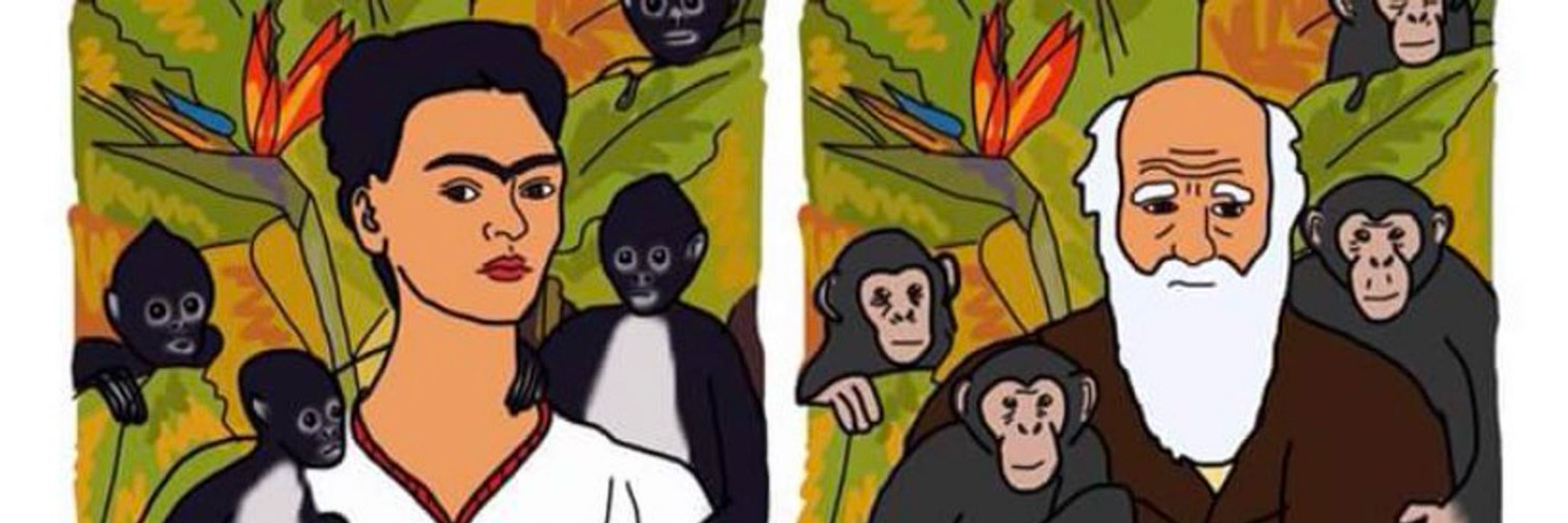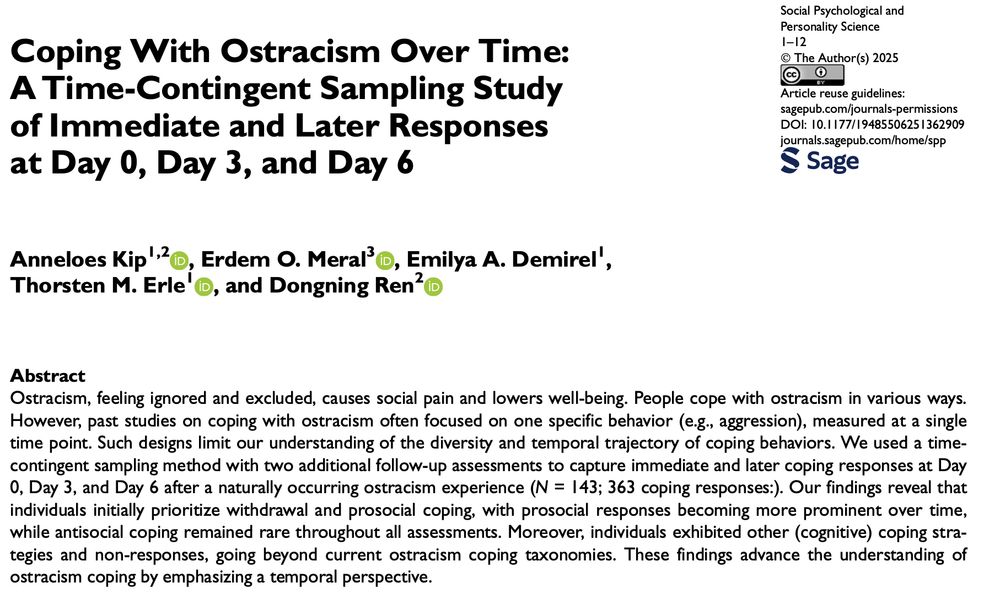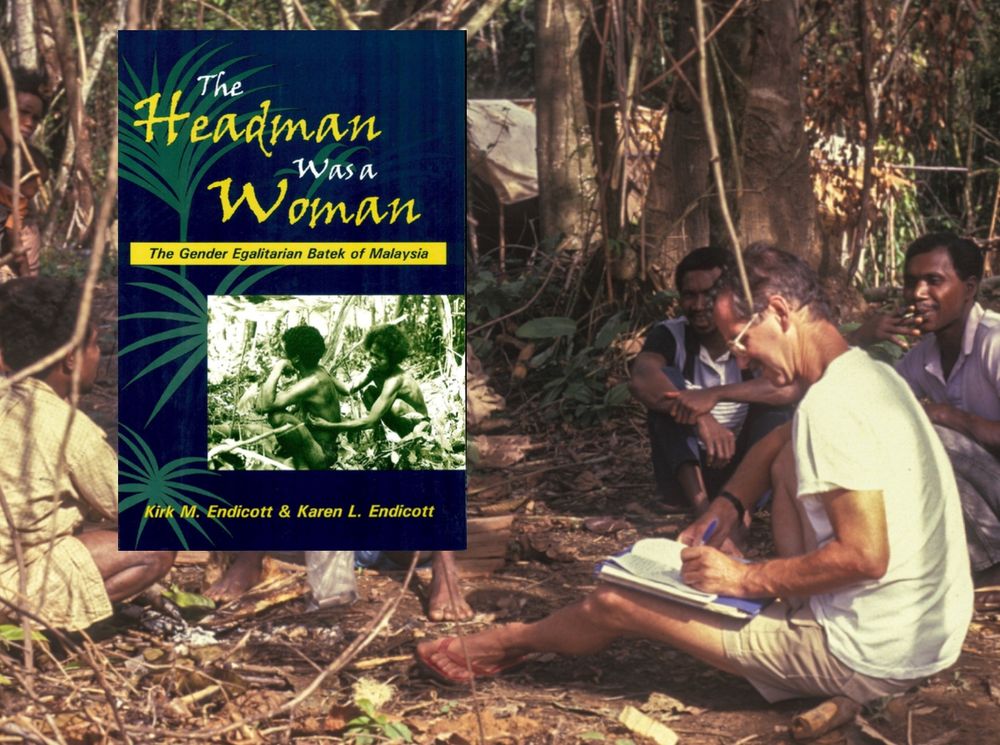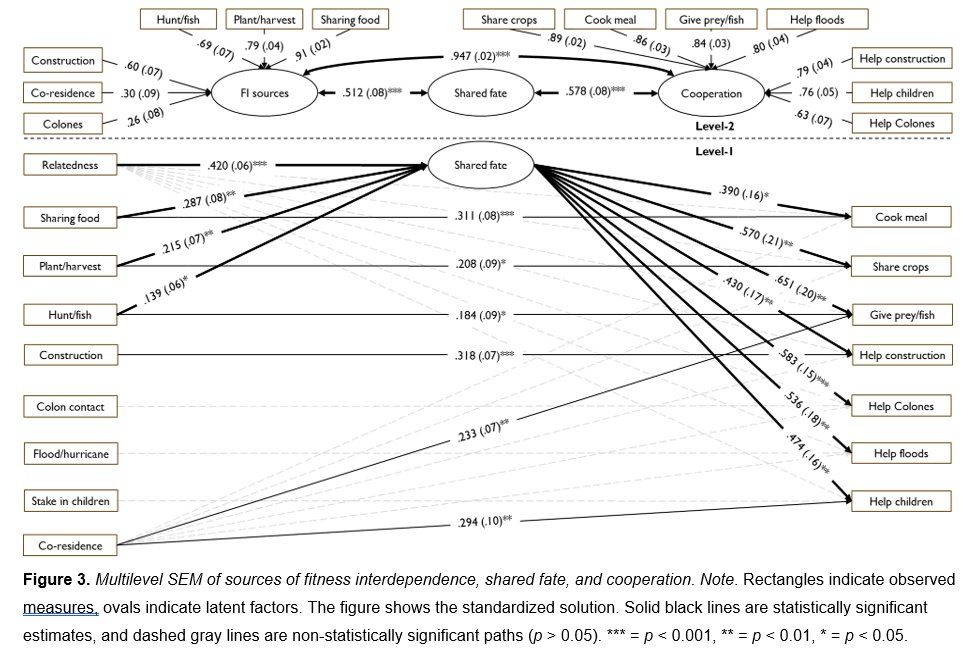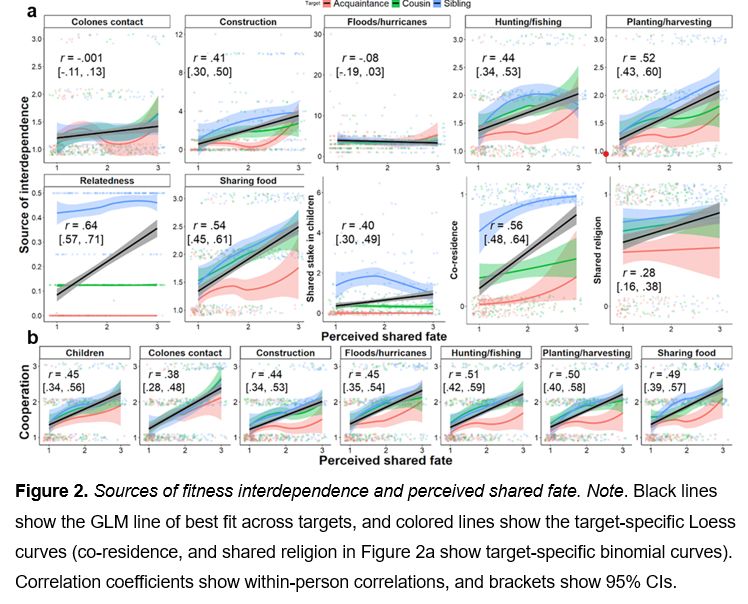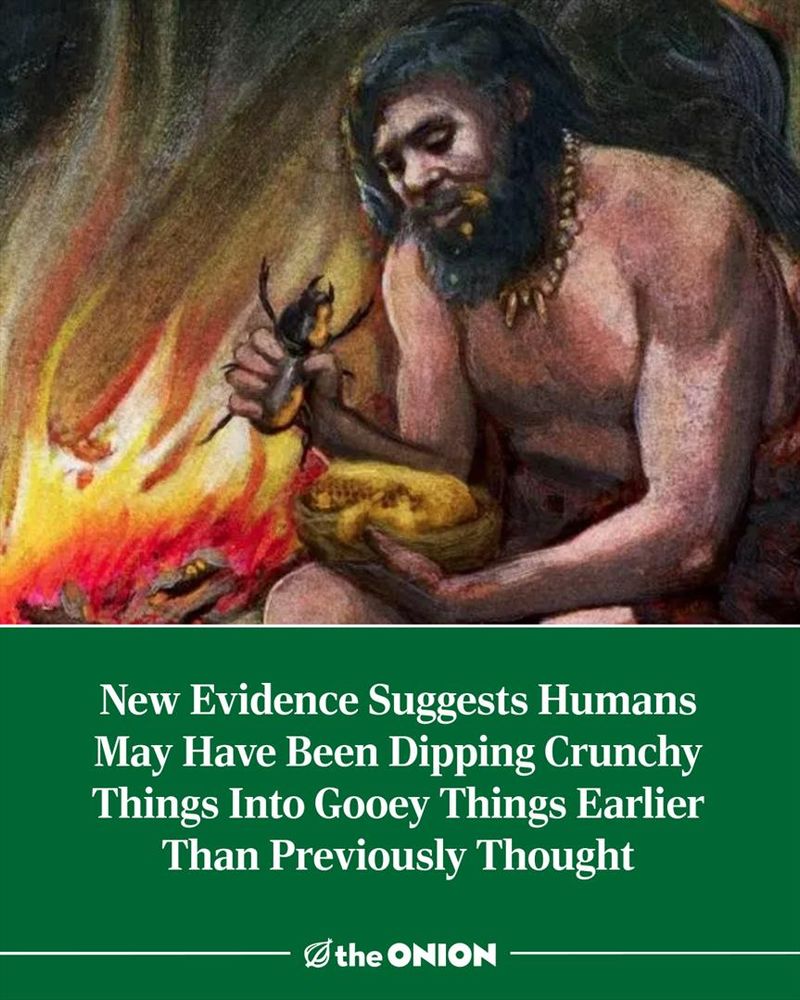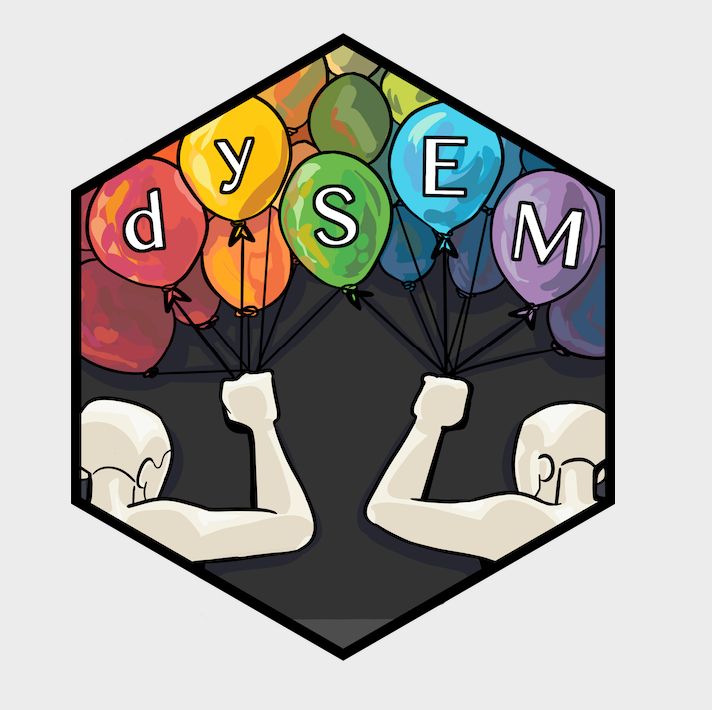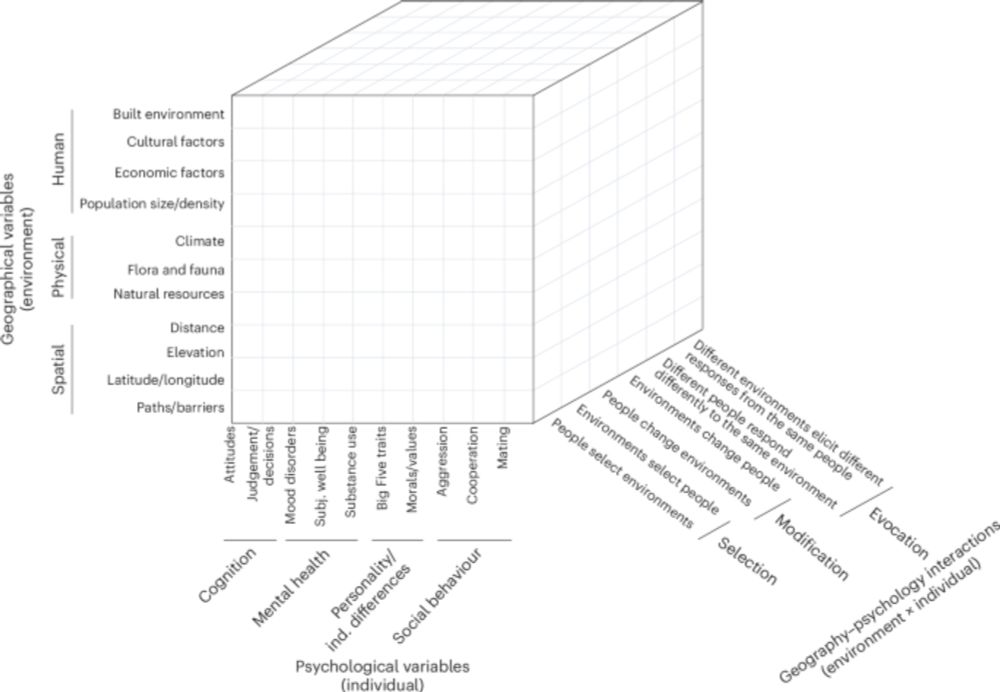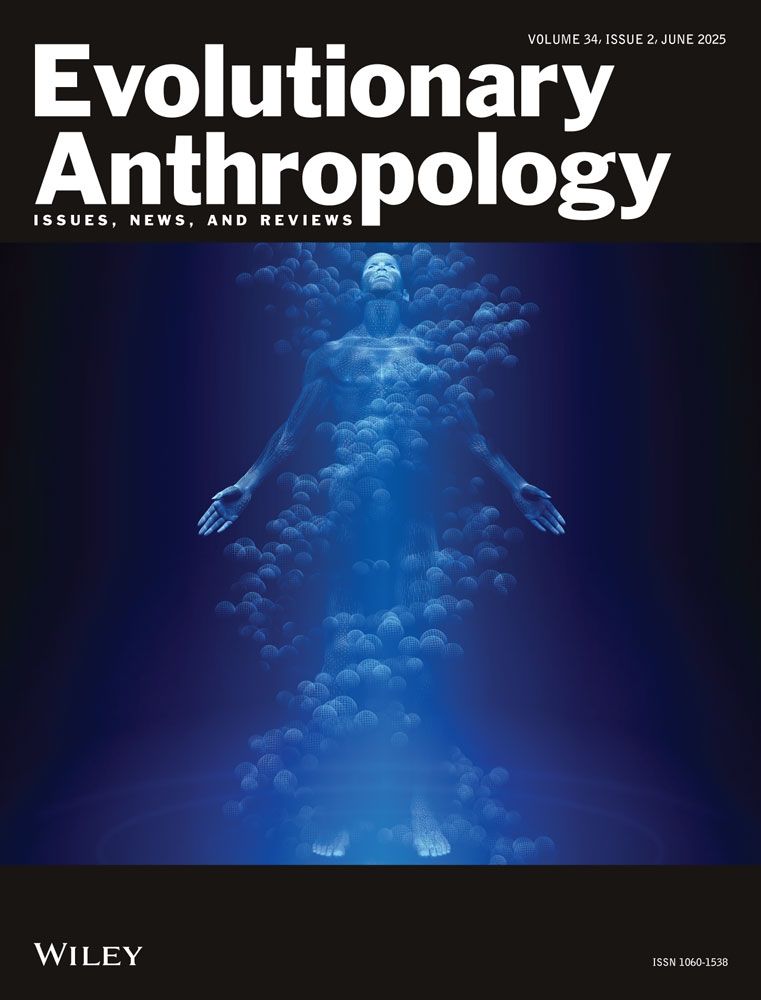Diego Guevara Beltran
@psycheddiego.bsky.social
350 followers
640 following
61 posts
Social psych + evo anthropology: Cooperation, interdependence, emotion. Assistant Professor, Department of Psychology, University of Arizona.
http://psycheddiego.mystrikingly.com/
Posts
Media
Videos
Starter Packs
Pinned
Reposted by Diego Guevara Beltran
Reposted by Diego Guevara Beltran
Reposted by Diego Guevara Beltran
Reposted by Diego Guevara Beltran
Reposted by Diego Guevara Beltran
Reposted by Diego Guevara Beltran
Reposted by Diego Guevara Beltran
Reposted by Diego Guevara Beltran
Reposted by Diego Guevara Beltran
Angelo Romano
@aromano.bsky.social
· Jul 9
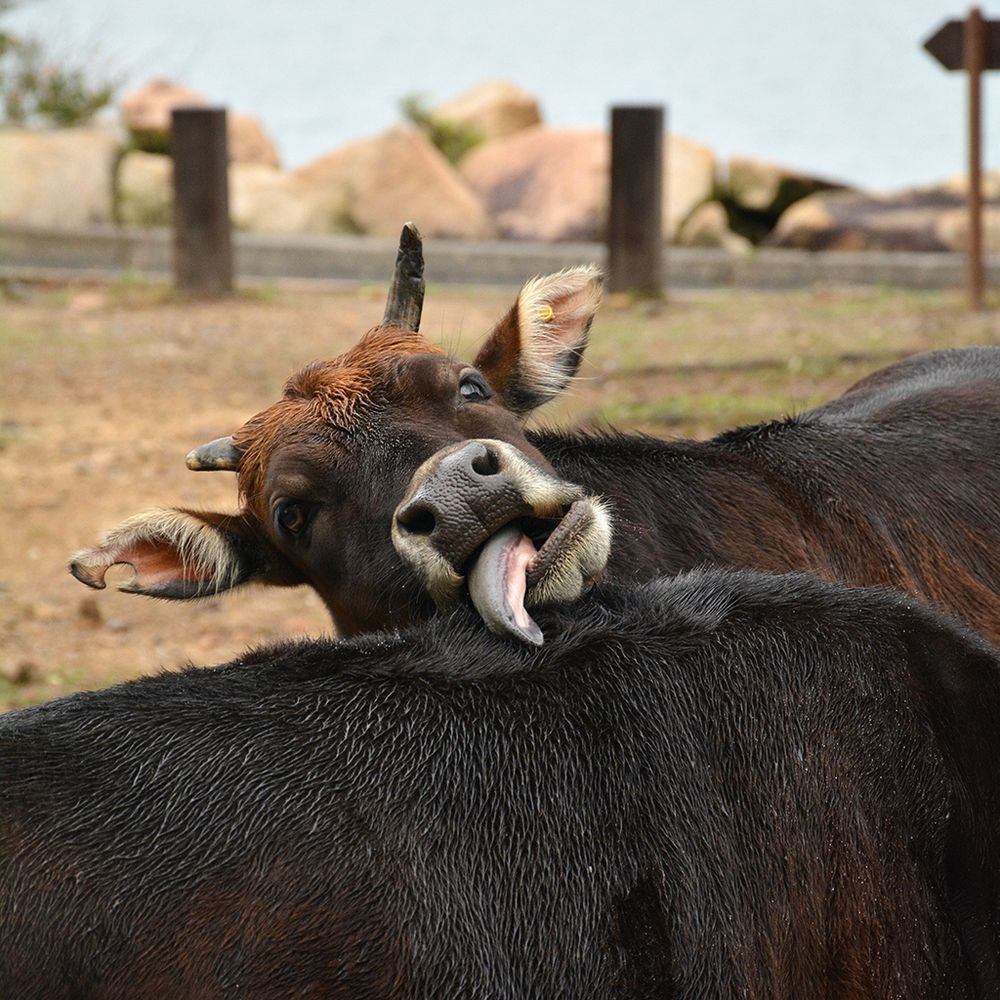
Reciprocity evolves more readily in competitive than cooperative socio-ecologies | Proceedings of the Royal Society B: Biological Sciences
Tracking what others did and matching other’s expected actions is seen across a range
of biological systems. As reciprocal matching rewards and reinforces cooperators and
punishes and discourages non-...
royalsocietypublishing.org
Reposted by Diego Guevara Beltran
Reposted by Diego Guevara Beltran
